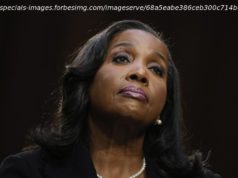The problem with taking a stand, of course, is that then you have to live up to it. That is Trump’s problem in Syria right…
The problem with taking a stand, of course, is that then you have to live up to it.
That is Trump’s problem in Syria right now, regardless of the actions that he chooses for the United States in the next day or so. The reports of an Assad government-sponsored chemical attack on his own people leave the president in a series of pickles:
The list goes on. Republicans like Senators John McCain (Ariz.) and Lindsay Graham (S. C.) immediately responded in chorus that the president had made the chemical attack more possible by announcing that he wants to withdraw from the region. Other NATO countries are talking about a response as well.
Beneath all of it, Trump insists that choosing sides in Syria does nothing for the United States. As with other tragedies, Trump wants to offer condolences, but really wants someone else to take the bad thing away. A year ago, Trump said it was no longer a priority to remove Assad as the Syrian president, for example; last week, Trump canceled $200 billion for Syrian rebuilding, for another.
At heart, this particular Syrian incident challenges Trump’s desire for isolation, for settling matters of complexity with a slogan or a wave of the presidential hand, for the lack of clarity in our objectives and standing in the world. In short, this is exactly the kind of incident that requires that he be a president.
Instead, most of his recent actions, both in domestic policies and in the international area, have been crafted to serve his particular and personal political need rather than to solve problems. From the proposed wall on the southern border to picking trade fights with China to belittling international accords, the true purpose seems not to fix anything, but to live up to his America (or Trump) First sloganeering.
Even in Syria, the problem at the moment is about the effects of the chemical attacks, for sure. But there are many other layered problems there, and trying to thread the needle on these questions are strategic and require layered, complex answers. As The New York Times reported: “The war in Syria has sucked in fighters from around the world, as well as global powers including Iran, Israel, Russia, Turkey and the United States, all of which are seeking to advance their interests in the Middle East while avoiding direct confrontations with the others.”
Meanwhile, Trump’s actions will do nothing to recognize the true victims of the attack. His insistence remains strong not to allow refugees to come to the United States.
The president’s approach in the region has been to declare friends and foes, and then to ignore the results. So, Turkey has been a friend in the fight against ISIS — until recently, when the U. S. allied Kurds have found themselves under attack from that same Turkish government, which fears secession efforts by the Kurds more than it does resurgence of the mostly defeated ISIS forces. Trump sees Iran as an enemy in all instances, rather than finding some areas of shared alliance. Within Syria, Trump prefers to look the other way rather than declaring Russian dominance in what remains of the country as part and parcel of the Russian aggressive expansionist campaign underway in Crimea, Ukraine and into the Middle East.
We have never fully sorted out who is who among the Syrian rebels, and so have been of two minds for six years now as to whether to arm or back various forces. Meanwhile, if the Assad government ever stops its internal attacks against insurgents, the remaining forces are a perfect cocktail of elements ready to re-form as a new rebellious Islamist effort.
Trump criticized his predecessor, Barack Obama, for leaving the Iraq sandbox too soon, leaving the elements in place for what grew to be ISIS. Now Trump is doing exactly the same. None of this is easy. Staying in Syria is almost as difficult as leaving.
Monday was the first day for a new, hawkish John Bolton as national security adviser. He immediately started ridding the staff of adherents of his predecessor and placing his own team. The likelihood is high for a strong military response to the chemical attack.
We can only hope that the White House, with all of its generals, figures out which problem they are trying to solve.






